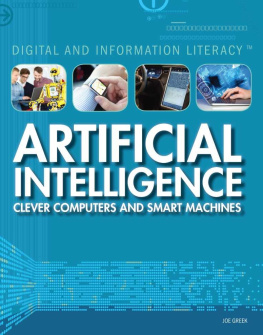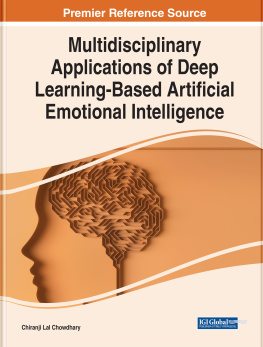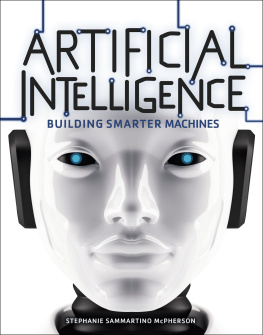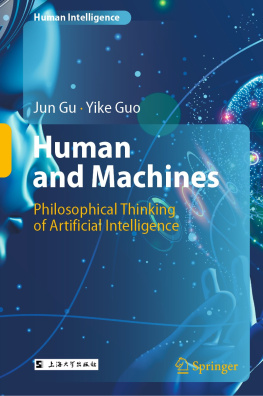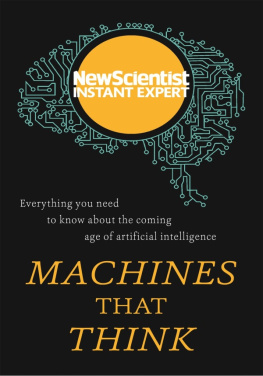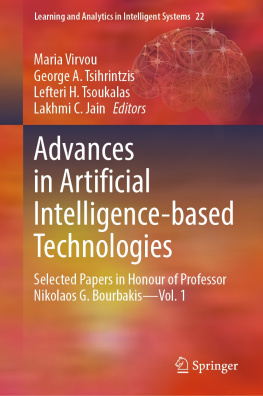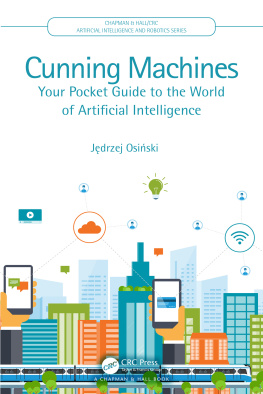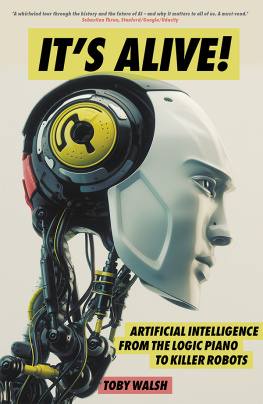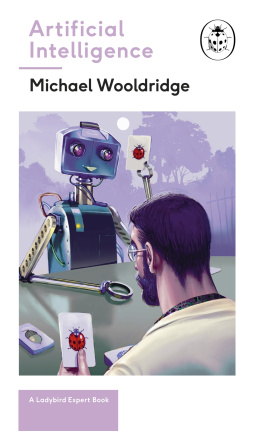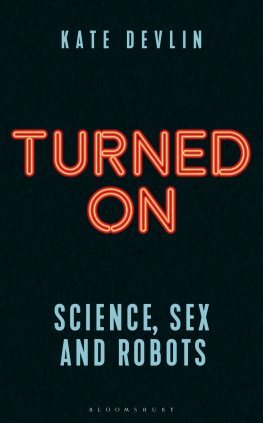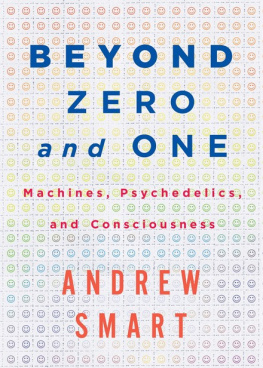Published in 2018 by The Rosen Publishing Group, Inc.
29 East 21st Street, New York, NY 10010
Copyright 2018 by The Rosen Publishing Group, Inc.
First Edition
All rights reserved. No part of this book may be reproduced in any form without permission in writing from the publisher, except by a reviewer.
Library of Congress Cataloging-in-Publication Data
Names: Greek, Joe, author.
Title: Artificial intelligence: clever computers and smart machines / Joe Greek. Description: New York : Rosen Central, 2018. | Series: Digital and information literacy | Includes bibliographical references and index. | Audience: Grades 5-8. Identifiers: LCCN 2017018775| ISBN 9781499438970 (library bound) | ISBN 9781499438956 (pbk.) | ISBN 9781499438963 (6 pack)
Subjects: LCSH: Artificial intelligenceJuvenile literature.
Classification: LCC TA347.A78 G74 2017 | DDC 006.3 dc23 LC record available at https://lccn.loc.gov/2017018775
Manufactured in the United States of America
CONTENTS
Chapter | |
Chapter | |
Chapter | |
Chapter | |
Chapter | |
In 2011, a shocking newcomer defeated two of the greatest contestants in the history of the television quiz show Jeopardy. Ken Jennings, who had the show's longest winning streak of seventy-four appearances, and fellow champion Brad Rutter had collectively earned more than $5 million in winnings during their appearances. The newcomer that defeated the two champions, however, was not even a person.
Instead, the victor was a powerful computer named Watson. Built by International Business Machines (IBM), Watson was what's known as a supercomputer. Supercomputers have a powerful ability to analyze vast amounts of data. Watson demonstrated to the world one example of a kind of advanced computer system known as artificial intelligence (AI).
AI refers to machines that carry out tasksbeyond merely physical onesin ways that are human-like. In short, it is intelligence exhibited by machines, including computers and robots. The kind of AI that Watson uses is able to sift through data and use deductive reasoning to identify the correct answer to a question. Humans also use deductive reasoning to figure out the best answers or solutions to challenges.
Nearly every industry utilizes some type of AI system to perform tasks that help improve efficiency. At the same time, AI is increasingly making its way into everyday life at school, work, and home. With applications on smartphones, tablets, and other devices, people often unknowingly use numerous AI systems throughout the day.

An engineer controls the 13-foot-tall (4 meter) Method-2 robot at the Hankook Mirae Technology labs in Gunpo, South Korea. Its robotic arms can hoist far more weight than a human ever could.
As AI systems start to come online, they will also change the way people live their lives. While AI's proponents hope to improve processes and work tasks, its widespread adoption will alter workforces around the world. Whereas human labor was once necessary for most tasks, AI, including AI-powered robots, is a likely future alternative. While there are issues with how AI might change society, and some even consider it threatening, many people remain excited about its possible applications.
The internet is another technology that needed several years of development before it became a staple of our work and personal lives. Even though AI research has existed for decades, the general public has not really seen it take off yet. Technology within this field of research, however, has grown exponentially and more companies are finding ways to develop products that utilize AI. In just a matter of years, AI could be more prevalent as it finds its way into more aspects of life.
Consider that a growing number of cars on the road today do not require an individual to operate the gas pedal or turn the steering wheel. In the future, many cars may be doing the driving while the passenger is just thata passenger. AI development can provide humanity with an astounding number of opportunities. For a smooth and sustainable future, humans will have to wisely guide AI research and development for the betterment of people and society.

W hen discussing AI, some people might imagine robots that exist alongside (or fight) people in science fiction thrillers. In reality, modern-day robots and their future iterations will probably differ greatly. Artificial Intelligence itself may diverge even more dramatically from the popular image that science fiction has created. Some people believe, for instance, that AI will exist mostly in the backgroundyet all around usmuch as the internet has in the early twenty-first century. It is certainly possible that the AI of the future could be a giant, intelligence network, as well as individual computers and robots that exist and work among humanity.
Early Representations of AI
The idea that a comparable level of intelligence and self-awareness could exist outside of the human mind has been around for many centuries. One of the first-known depictions of AI arose in ancient Greek mythology. The story of Talos dates from 500 BCE and revolves around a giant automaton (a self-operating machine) made of bronze that protected the island of Crete. In one version of the story, Talos is said to have carried tablets with laws etched onto them throughout the island's villages. He would then act as a judge and settle disputes between the villagers.
Automatons can be considered the earliest real-life examples of robotics and of human attempts to create machines that can mimic human behavior. Unlike Talos, actual automatons lacked the power of formal reasoning. However, in many cases they were designed to resemble people, or other living creatures, in order to fool audiences. Automatons utilized a variety of engineering mechanisms, such as steam power and steel springs, to perform predetermined actions. Some early audiences may have been tricked into thinking the automatons had some kind of free will of their own.
Automatons are still produced to this day and are made for a variety of uses. Many decorative cuckoo clocks, for example, have miniature automatons that perform a set of functions at certain times of the day.
In addition to the physical aspects of human movement, thinkers have long tried to decode the secrets of formal reasoning as well. Gottfried Leibniz, a famous seventeenth-century mathematician and philosopher, speculated that formal reasoning could be broken down into a universal language or equation. In his theory, known as characteristic universalism, he proposed that our ability to reason between right or wrong could be illustrated in a formal language that everyone could understand. His theory is one of many that helped to lay the foundation for the study of AI in modern computer programming.

